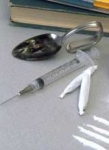What is Addiction?

Everyone has a basic idea of what addiction is, yet it’s a complex and involved topic that goes far beyond common knowledge.

Nonetheless, it’s worth delving deeper to learn more about addiction if you or someone you know is affected by it – or if you’re trying to determine whether the person does in fact have an addiction.
Arguably, you could be addicted to different kinds of activities, but this guide refers directly to an addiction to substances, whether to drugs or alcohol.
What is Addiction?
If you start researching what addiction is, you will notice disparate definitions and theories on the cause of addiction across various professionals and fields. Different people and groups see it as one of the following:

A medical disease

A psychological state

A behavioral problem

A social or experiential issue
Nonetheless, a common thread between viewpoints seems to be that a person is considered addicted when he is either unable or unwilling to stop using the substance. He continues to use the substance even when it is causing consequences in his life – he may or may not be aware of this cause and effect relationship.
Signs and Symptoms of Addiction
Certain signs and symptoms are associated with addiction to a substance:
- 1. Less Control
One of the main signs you might notice is that you or your loved one has less control over the use of drugs or alcohol. So you might be addicted if you are using a substance more or for a longer period of time than you meant to. Maybe you even decided that you were going to cut back or stop, but that didn’t happen.
- 2. Physical Symptoms
Various physical symptoms can show themselves. For example:
-
Substances can alter your appearance.
-
An addiction can make you focus less on your personal hygiene and looks.
-
Your body can become tolerant to a substance so you no longer get the same effects unless you have more of the drug or alcohol.
-
If you do decide to stop using your substance of choice, you go through withdrawal effects that could include irritability, trouble sleeping, sweating and other symptoms.
-
- 3. Behavioral Changes
It’s also likely for you to change your behaviors if you are addicted. You might not spend as much time as you previously had on certain activities, including:
-
Work
-
Family time
-
Hobbies
Instead, getting and using your chosen substance takes precedence over these activities. You might spend time hiding your drug use or related aspects such as how much you used or where you went. And you might also end up engaging in risky behaviors to get your drug or because you’re on a substance.
-
- 4. Additional Signs
There are various other signs and symptoms associated with both drug abuse and drug addiction, which include:
-
Mood changes
-
Changes in your eating habits
-
Isolating yourself
-
Talking quickly or erratically
-
What causes Addiction?
As previously mentioned, various theories exist on how and why addiction starts. What are some of the prevalent viewpoints on addiction?
Addiction as a Disease

One idea that’s generally accepted in the medical field is that addiction is a disease that involves your brain. If you have an addiction, this viewpoint follows the idea that you are not capable of simply quitting, but instead need medical help to manage the disease.
The definition for addiction on the National Institute on Drug Abuse website follows this model, saying that addiction alters the brain’s functioning. In addition, the institute explains that these changes to the brain can lead to various mental concerns, including mood swings and difficulty with decision-making.
The American Society of Addiction Medicine, or ASAM, website goes deeper into this viewpoint, explaining that this chronic disease involves dysfunction in various parts of the brain, including the centers of reward, memory and motivation. You could notice these problems showing themselves in a myriad of ways through mind, body, spiritual and social applications.
The ASAM definition notes that because of an addiction, you are likely to:

-
Have cravings for the substance
-
Be unable to continually refrain from using the substance
-
Have difficulty controlling your behaviors, responding with healthy emotions and realizing when you have a problem
Also, the ASAM website explains that addiction is included with other chronic diseases in part because it is characterized by relapse and remission periods, and because it worsens in the absence of treatment.
A Psychological Addiction
The Psychology Today website discusses psychological addiction, in addition to
acknowledging two types of physical addiction:

-
1. the body developing a tolerance to drugs or alcohol
-
2. the brain reacting too strongly to substances or certain cues related to the substance
Psychological addiction, according to the website, is where you would compulsively use a substance or perform a certain activity because you are emotionally stressed – this can coincide with a physical addiction or not.
Psychology Today mentions that with this type of addiction, you could switch from one kind of drug to another or even to a behavior separate from drugs, such as gambling or shopping.
(...omissis...)
copia integrale del testo si può trovare al seguente link: https://www.lumierehealingcenters.com/what-is-addiction/
(Articolo pubblicato dal CUFRAD sul sito www.alcolnews.it)
